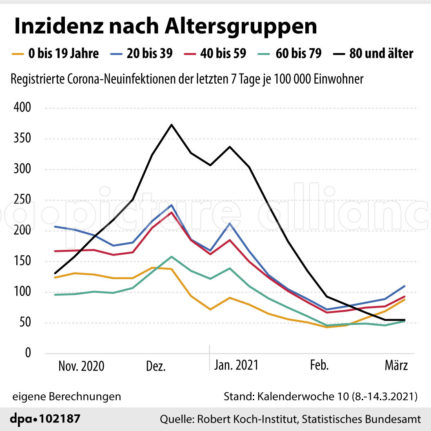“As a result of the relaxation of lockdown measures, we expect to treat more young people affected with mostly diffuse, longer-lasting health problems,” Markus Hufnagel from the Centre for Paediatrics and Adolescent Medicine at the University Hospital of Freiburg told DPA.
Since February, primary school children have been able to attend class again in Germany, while high school children have also returned to school in some parts of the country in March.
This has contributed to an increased level of infections in these age groups, epidemiologists say.

Coronavirus infections are often asymptomatic in children, while severe courses of the disease are rare even in adolescents, Hufnagel said.
Nevertheless, so-called long Covid – whereby people suffer symptoms months after recovering from the initial infection – has also been reported in children.
READ MORE: Bavaria plans 100 million rapid Covid tests to allow all pupils to return to school
“The clinical picture is very variable,” said Hufnagel, who lists possible consequences for children as including chronic exhaustion, general reduction in performance, and joint and muscle pain.
“In general, the symptoms are not specific to an infection with Sars-CoV-2. We have seen similar persistent health effects after infections with other viruses such as mononucleosis,” he explained.
But he stressed that the health effects should not be underestimated.
“The problem is currently getting bigger rather than smaller, we are already seeing significantly more post-Covid cases. These tend to be patients in adolescence; cases in children ten years of age and younger are much rarer.”
Although there is little good data from Germany on this topic, a study in households where coronavirus cases had been identified showed that five percent of children and adolescents under the age of 14 still had at least one symptom three months after infection.
Hufnagel added though, that the generally stressful situation created by the pandemic is also playing a role in the occurrence of persistent effects – not just the virus itself.
“The lockdown is a big stress factor. When the pandemic situation improves, the signs of fatigue should also improve, at least in some of those affected.”
SEE ALSO: Germany urges ‘caution’ as Covid-19 infections climb and schools reopen



 Please whitelist us to continue reading.
Please whitelist us to continue reading.
Member comments